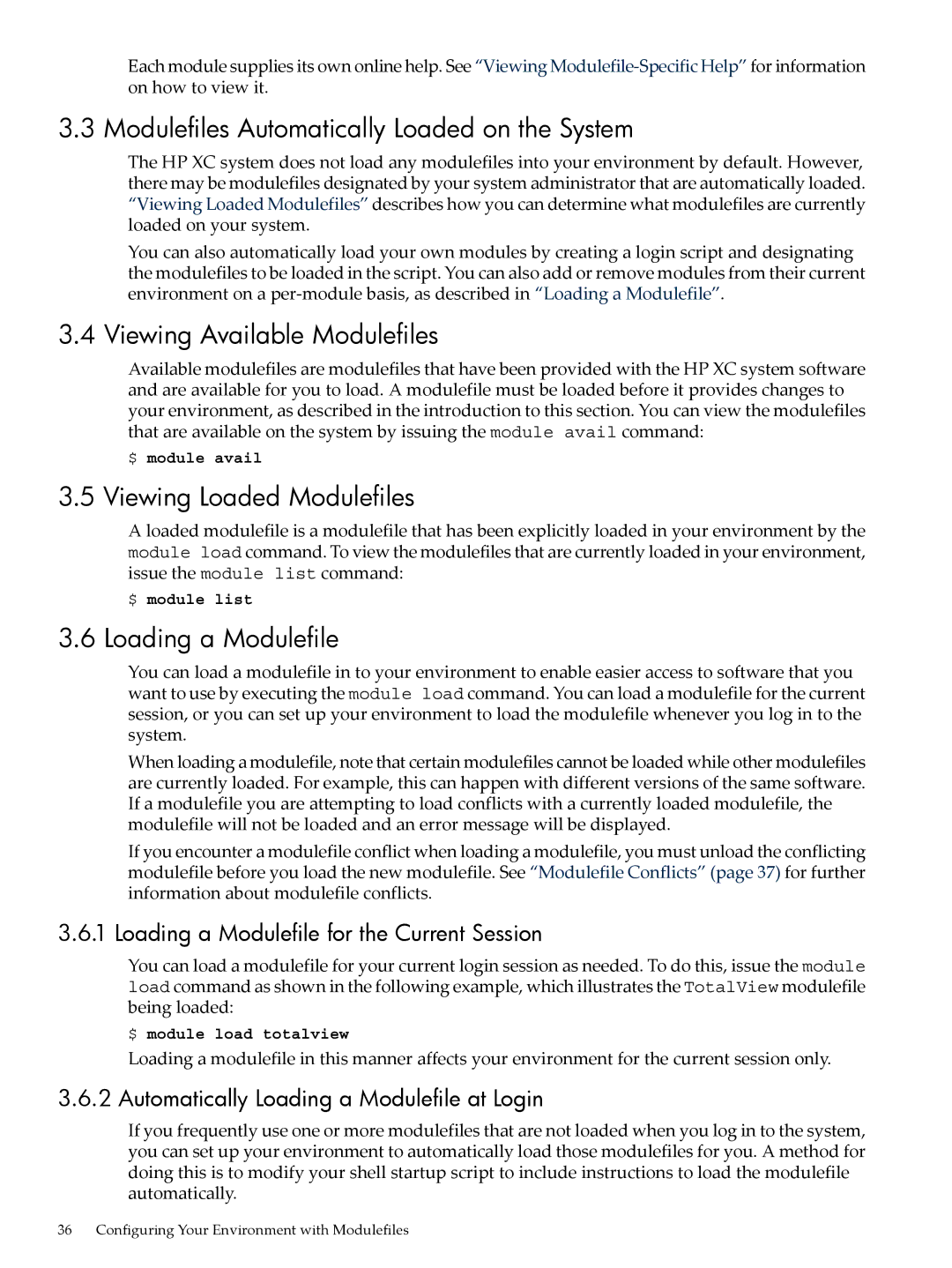Each module supplies its own online help. See “Viewing
3.3 Modulefiles Automatically Loaded on the System
The HP XC system does not load any modulefiles into your environment by default. However, there may be modulefiles designated by your system administrator that are automatically loaded. “Viewing Loaded Modulefiles” describes how you can determine what modulefiles are currently loaded on your system.
You can also automatically load your own modules by creating a login script and designating the modulefiles to be loaded in the script. You can also add or remove modules from their current environment on a
3.4 Viewing Available Modulefiles
Available modulefiles are modulefiles that have been provided with the HP XC system software and are available for you to load. A modulefile must be loaded before it provides changes to your environment, as described in the introduction to this section. You can view the modulefiles that are available on the system by issuing the module avail command:
$ module avail
3.5 Viewing Loaded Modulefiles
A loaded modulefile is a modulefile that has been explicitly loaded in your environment by the module load command. To view the modulefiles that are currently loaded in your environment, issue the module list command:
$ module list
3.6 Loading a Modulefile
You can load a modulefile in to your environment to enable easier access to software that you want to use by executing the module load command. You can load a modulefile for the current session, or you can set up your environment to load the modulefile whenever you log in to the system.
When loading a modulefile, note that certain modulefiles cannot be loaded while other modulefiles are currently loaded. For example, this can happen with different versions of the same software. If a modulefile you are attempting to load conflicts with a currently loaded modulefile, the modulefile will not be loaded and an error message will be displayed.
If you encounter a modulefile conflict when loading a modulefile, you must unload the conflicting modulefile before you load the new modulefile. See “Modulefile Conflicts” (page 37) for further information about modulefile conflicts.
3.6.1 Loading a Modulefile for the Current Session
You can load a modulefile for your current login session as needed. To do this, issue the module load command as shown in the following example, which illustrates the TotalView modulefile being loaded:
$ module load totalview
Loading a modulefile in this manner affects your environment for the current session only.
3.6.2 Automatically Loading a Modulefile at Login
If you frequently use one or more modulefiles that are not loaded when you log in to the system, you can set up your environment to automatically load those modulefiles for you. A method for doing this is to modify your shell startup script to include instructions to load the modulefile automatically.
36 Configuring Your Environment with Modulefiles
